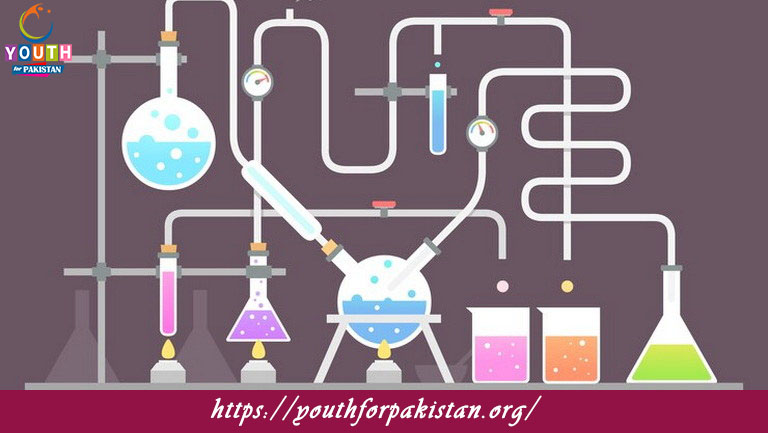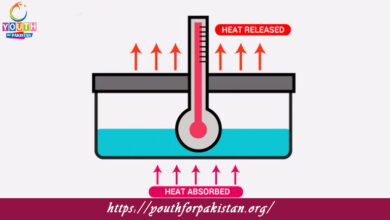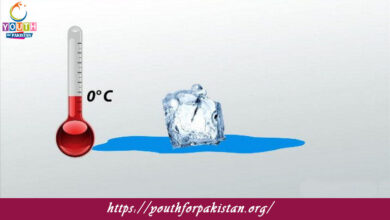Thermochemistry Quiz with Answers

Welcome to the Thermochemistry MCQs with Answers, it helps learners quickly identify areas for improvement in Thermochemistry Online Test.
| Thermochemistry is the branch of chemistry that studies the heat and energy changes associated with chemical reactions and physical transformations. It focuses on understanding how energy is absorbed or released during these processes, providing insights into reaction spontaneity, feasibility, and the efficiency of energy use.
A thermochemistry quiz typically includes MCQs on thermochemistry, covering key concepts such as enthalpy, entropy, and Gibbs free energy. These principles help predict whether a reaction will occur spontaneously and quantify the energy changes involved. Thermochemistry multiple choice questions often require calculations related to heat transfer, specific heat capacity, and calorimetry. Heat and energy changes MCQs focus on the first law of thermodynamics, which states that energy cannot be created or destroyed, only transformed. Understanding how to measure and calculate the enthalpy changes in reactions, such as combustion or formation, is crucial for mastering this topic. Thermochemistry exam questions challenge students to apply their knowledge to real-world scenarios, such as determining the energy efficiency of reactions or understanding the environmental impact of energy changes. Enthalpy and entropy MCQs delve deeper into these state functions, examining how they contribute to the overall energy balance in chemical processes. |
Thermochemistry Online Quiz
By presenting 3 options to choose from, Thermochemistry Quiz which cover a wide range of topics and levels of difficulty, making them adaptable to various learning objectives and preferences. You will have to read all the given answers of Thermochemistry Questions and Answers and click over the correct answer.
- Test Name: Thermochemistry MCQ Quiz Practice
- Type: Quiz Test
- Total Questions: 40
- Total Marks: 40
- Time: 40 minutes
Note: Answer of the questions will change randomly each time you start the test. Practice each quiz test at least 3 times if you want to secure High Marks. Once you are finished, click the View Results button. If any answer looks wrong to you in Quiz, simply click on question and comment below that question, so that we can update the answer in the quiz section.
Download Certificate of Thermochemistry Test
On the end of Quiz, you can download the certificate of the quiz if you got more than 70% marks.
Thermochemistry Flashcards

What is the heat absorbed or released when a system undergoes a chemical reaction at constant volume?

What is the heat absorbed or released when a system undergoes a chemical reaction at constant pressure?

What is the heat absorbed or released when a substance absorbs or loses heat without changing its temperature?

What is the heat absorbed or released when a gas condenses into a liquid at constant temperature and pressure?

What is the heat absorbed or released when one mole of a substance undergoes a phase change from solid to gas?

What is the heat absorbed or released when one mole of a substance undergoes a phase change from liquid to gas?

What is the heat absorbed or released when one mole of a substance undergoes a phase change from solid to liquid?

What is the heat absorbed or released when one mole of a substance combines with a large excess of another substance?

What is the heat change associated with the formation of one mole of a compound from its elements in their standard states?

What is the heat absorbed or released when one mole of a substance combines with a large excess of another substance to form a solution?

What is the heat absorbed or released when one mole of a substance is dissolved in a specified amount of solvent?

What is the heat absorbed or released when one mole of a substance is dissolved in a large amount of solvent?

What is the enthalpy change when one mole of a substance is burned completely in oxygen under standard conditions?

What is the heat absorbed or released when one mole of a substance undergoes a change of state at constant temperature and pressure?

What is the change in enthalpy for a reaction in which one mole of a compound is formed from its elements in their standard states?
If you are interested to enhance your knowledge regarding Physics, Computer, and Biology please click on the link of each category, you will be redirected to dedicated website for each category.




